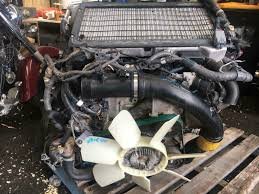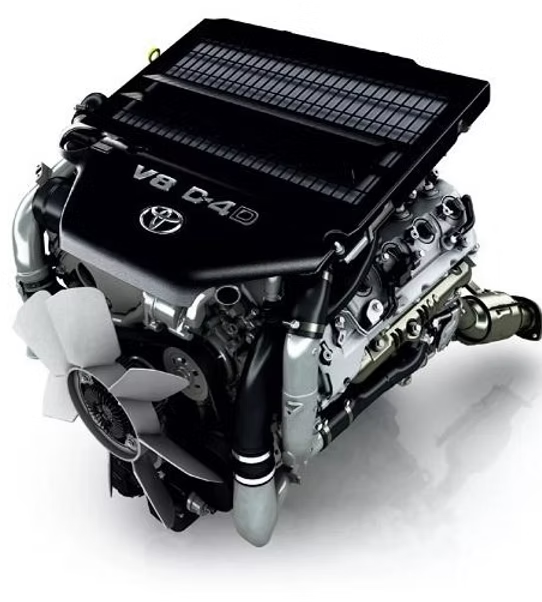What You Need to Know. When it comes to automobile performance, the engine simply can’t help but be the center of attention of a car. Whether you’re an automobile buff who wants to give your vehicle a newfound boost, a mechanic looking for stable parts, or a DIY person restoring an antique car, learning the basics on engines for sale is your best bet. In this comprehensive guide, we have listed the various types of engines, what to look for while purchasing one, and tips on how to make the right selection according to your needs. What You Need to Know
Understanding Engine Types
Before going to the process of buying, we would like you to know about the different kinds of engines one can buy. The engine that you will buy will largely be based on your specific requirement and the car you are restoring. What You Need to Know
1. Gasoline Engines
Gasoline engines are also the most prevalent one used in automobiles by people. Gasoline engines are generally light, have good acceleration, and are easy to maintain. There are certain configurations in gasoline engines:
- Inline Engines: Used in most small cars since they are simple and cheap. Toyota 4-cylinder engines are some examples.
- V Engines: V engines (e.g., V6 and V8) are more torque-y and power-ful, and therefore better suited to be used in sports cars and trucks. Ford and Chevrolet are large brands with a good reputation for using V8 engines. What You Need to Know
2. Diesel Engines
Diesel engines are very fuel-efficient and create tons of torque. Diesel engines are best suited for heavy-duty such as use in trucks and buses. Diesel engines will outlast gasoline engines but be more high-tech to service. If you are purchasing a diesel engine, Cummins and Duramax are the two brands that are popularly known to be reliable. What You Need to Know
3. Hybrid and Electric Engines
With more individuals paying attention to the Earth, electric and hybrid engines have picked up significantly in popularity. Hybrid engines are used jointly by a gasoline engine and an electric motor to consume fuel in the most efficient manner and reduce emissions. Fully electric engines, such as that of Tesla, run on electricity alone. They are suited for individuals who want less carbon footprints. What You Need to Know
4. Performance Engines
When you are an automobile enthusiast and would like to boost the power of your automobile, you can buy performance engines. They are built for high torque and horsepower, thus making them a good choice to install in competitive racing or off-road conditions. Honda and Subaru are some of the companies that make performance versions of their standard engines. What You Need to Know
Key Points to Consider When Buying an Engine
1. Compatibility
When purchasing an engine, you need to first ensure that it is compatible with your vehicle. This involves the type of engine, size, and engine configuration. You can find this in your car manual or have a mechanic check for you if it is compatible or not. What You Need to Know
2. New vs. Remanufactured vs. Used
- New Engines: Primarily the most costly but warranty and reliability promise included.
- Remanufactured Engines: Rebuilt engines that are remanufactured to the original standards. They are an inexpensive option but reliable as well.
- Used Engines: Cheaper option in most instances, but history unknown. It is better to have these inspected for wear and tear prior to purchase. What You Need to Know
3. Warranty and Return Policy
Always check the warranty and return policy when purchasing an engine. A decent warranty can be very reassuring, especially when purchasing remanufactured or second-hand engines. If issues come up on installation, a return policy will prevent you from losing money.
4. Seller Reputation
Choose a trusted seller when buying an engine. Check customer ratings and reviews. A trusted seller will offer quality items and good customer service for convenient purchasing. What You Need to Know
5. Price Comparison
Prices are extremely diverse by make, type, and condition. Compare and shop around and obtain the best price from multiple sellers. Make sure to consider shipping charges if purchasing online. What You Need to Know
Where to Buy Engines
Now that we’ve discussed what to look for, let us discuss where to find engines for sale.
1. Online Retailers
These websites, including eBay Motors, Amazon, and other used car part retailers, offer second-hand engines in bulk with listings. Do make sure to read over the descriptions and seller ratings.
2. Local Junkyards
Local scrap yards are a treasure trove when purchasing second-hand engines. There you might possibly obtain cheap second-hand engines with no warranty included. You can, however, bargain to obtain a low rate if the engine is subjected to careful inspection prior to your acquisition.
3. Authorized Dealerships
For individuals seeking new engines, authorized dealerships are the place to visit. They guarantee that you’re obtaining an engine per factory specifications. This option, however, tends to be more expensive.
4. Performance Shops
If you’re looking for high-performance engines, consider visiting performance shops that specialize in racing or custom builds. They often carry a variety of performance engines and can provide expert advice.
Tips for a Successful Engine Purchase
- Do Your Research: Familiarize yourself with the specific engine you’re considering. Understand its specifications, performance characteristics, and common issues.
- Ask Questions: Do not be afraid to call sellers with questions. An educated seller ought to provide comprehensive information on the history and condition of the engine.
- Factor in Installation Charges: Factor in the installation charge if you are not self-installing. Professional installation may be extremely expensive.
- Examine First Hand: When purchasing locally, examine the engine first hand. Wear and tear, corrosion, and damage should be examined.
- Maintenance Plan: After purchasing an engine, plan maintenance to have it for a long period of time. Follow the manufacturer’s advice for oil change, coolant checkup, and maintenance procedures.
Conclusion
Purchasing an engine is one big project whether it is the issue of restoration, performance gain, or merely a replacement. Having some idea of what types of engines to search for, where to seek them out, and how to search for them places you in the most advantageous position to make informed choices that better meet your requirements and price point.
We’re proud at Continental Motors to have thousands of engines available for sale in stock, with professional advice on hand to guide you through the buying process. If you’re ready to be the owner of the right engine for your car, click through to our website today and check out our inventory!






Leave a Comment
Your email address will not be published. Required fields are marked *